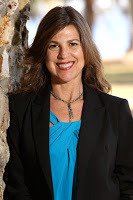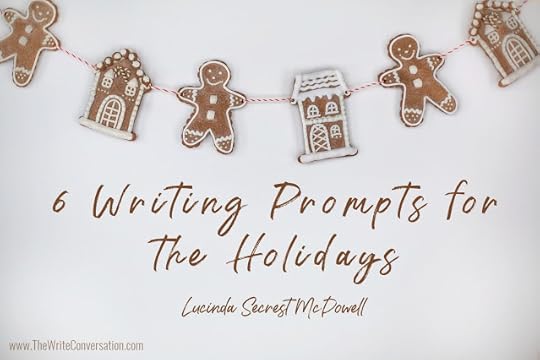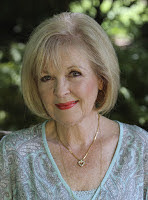Edie Melson's Blog, page 147
October 22, 2021
Why Does the World Need Stories - Part 3

by Zena Dell Lowe @ZenaDellLowe
Why the World Needs Stories About Heroes
When you think about heroes, what comes to mind? Somebody from your family? Superman? Maybe an historical figure who did something great? For me, the word “Hero” makes me think of my stepdad, Ralph, who married my Mom in spite of the fact that she had three little kids at home. He loved each of us as if we were his own—something few men would have done.
As it turns out, this conception of a hero isn’t too far off the mark. The ancient Greeks lauded heroes as mortals who had done something so far beyond the normal scope of human experience that they deserved to be worshipped as gods. Even Medea, who murdered her children, left an immortal imprint behind. To the Greeks, heroes need not be morally good. They need only be extraordinary, which was meant to expand our own conceptions of what was even possible for human beings.
To be extraordinary, then, is an essential component part of a hero, which has endured throughout history. In the wild west, our heroes included outlaws and murderers like Billy the Kid, Butch Cassidy, and even Calamity Jane, who broke the conventions of ordinary women and became one of the best gunslingers of the west. All three of these were called “heroes.” Why? They were extraordinary.
We need our heroes to be exceptional above all else, and we seek out these types of people in real life. All over the world, we search for amazing and unique people that we can admire and venerate, which I think speaks to the way God designed our hearts. He created us for worship, and heroes represent something greater than ourselves for us to adore. They exemplify what it means to live life to its fullest and transcend the tedium of everyday life.
Real Life HeroesToday, being a hero means not only performing great feats, but also doing so in a morally righteous way. We see a hero as someone who upholds our highest standards of morality even as they help define the limits of our aspirations. The only people we call heroes are those whom we admire and wish to emulate. As Scott LaBarge wrote, “Our heroes become symbols to us of all the qualities we would like to embody and all the ambitions we would like to satisfy.”
But what does all of this have to do with us as storytellers? For one thing, it gives us insight into the kinds of stories we should be telling. Society may be growing evermore cynical, but we still have a chance to make a difference. When we tell stories about extraordinary people who do extraordinary things in an extraordinary way (i.e., for the morally right reasons), then we give people heroes who are worthy for them to emulate and who inspire them to be better than they are.
Perhaps this seems like a tall claim, but consider the power of the Marvel cinematic universe to penetrate the collective psyche of the human race. Regardless of age, race, ethnicity or gender, these stories captured the imaginations of people from all cross-sections of society, from every country, on all continents, all over the world. If you're not into these types of stories, you may not fully appreciate the phenomena that is the marvel cinematic universe. There's something powerful there. Something extraordinary. Which is why there’s never been a better time to be a storyteller.
This opportunity has been made even greater by the fact that we rarely look to real life heroes anymore. We’ve become increasingly cynical about putting our faith in actual historical figures because every icon has been knocked down and exposed as a fraud. We’ve come to accept that human beings are fallible. We expect them to let us down. And the more we discover about our former heroes, the more disappointing they become. Thomas Jefferson, one of America's founding fathers and the primary author of The Declaration of Independence, was also a slave owner. George Washington, the military general of the revolution and arguably the greatest American president who ever lived, also a slave owner. People everywhere are rejecting these men whom we once considered heroes and patriots. But they violated our modern sensibilities, and therefore there’s a movement to rewrite history and denounce them as traitors, to tear down the so-called symbols of white privilege upon which this nation was built.
By the way, it should be noted that this dismissive approach is both short-sighted and hypocritical. If we could but abandon our legalist demands for perfection, we might see how their human foibles actually give us hope. If these men, who are clearly flawed, can still rise above the trappings of their human weaknesses to accomplish something great, then why shouldn’t it inspire us to throw off the yoke of our human foibles to go and do likewise? These men are like us - broken and depraved - which means it’s possible for us to transcend the frailties of our nature. Sadly, this is not the perspective being taken today. Instead, we demand and expect moral perfection, and if they fail to live up to it (as they inevitably will), we discard them and decry them as villains.
This reality of our modern world makes my heart heavy, but it also presents an unprecedented opportunity. The need for fictional heroes has increased. Having learned that real human beings are unreliable or untrustworthy, we’ve ceased to put our faith in them. Better to protect ourselves now so that we're not disappointed when the real truth comes out later. And this cynicism is understandable as a natural consequence of human sin. Consider the myriads of sexual scandals over the years, even by so-called godly men. The sins of the Christian community have done as much to blaze a trail to cynicism as the nihilistic philosophies of the age. We know everyone has skeletons in their closet. We know everyone will fail us in the end. But the upshot of all this is that there’s a void of heroes in the world, and as storytellers, we have a chance to fill it.
If we cannot look to real life people for our heroes, we will by necessity look to fictional ones. Fictional characters are worthy of our devotion because they are better than real. They won’t let us down. We can handle their weaknesses because we know them in a way we could never know a real person. We trust them, even though they're flawed, because we know who they are deep inside.
Notice one of the key differences here. Whereas we demand perfection in real human beings, we accept imperfection in our characters. This means that our fictional characters can and should be flawed. However, they must be flawed in a way that allows us to comprehend them. We tolerate and forgive their sins because we understand what's behind those sins, and we see beyond their shortcomings to the heart. The world is complex, but stories give it form. Stories make heroes accessible.
People are looking for heroes today, and they're terrified to look to real people, which means we have a unique opportunity as a community to write stories with heroic characters at the center. In my next post, I’ll break down how we can maximize this opportunity in a powerful and practical way. Until then, just remember, even a little boy can be a hero if he says he's not hungry when he sees that there's not enough pie to go around. Join me on this deep dive into heroism and learn to write stories for such a time as this.
TWEETABLEWhy Does the World Need Stories & Why Does the World Need Heroes - @ZenaDellLowe on @EdieMelson (Click to Tweet)
Don't Miss the Other Posts in This SeriesWhy Does the World Need Stories, Part 1Why Does the World Need Stories, Part 2Why Does the World Need Stories, Part 3
 Zena has worked professionally in the entertainment industry for over 20 years as a writer, producer, director, actress, and story consultant. Zena also teaches advanced classes on writing all over the country. As a writer, Zena has won numerous awards for her work. She also has several feature film projects in development through her independent production company, Mission Ranch Films. In addition to her work as a filmmaker, Zena launched The Storyteller’s Mission with Zena Dell Lowe, a podcast designed to serve the whole artist, not just focus on craft. In 2021, Zena launched The Storyteller’s Mission Online Platform, where she offers advanced classes and other key services to writers. Zena loves story and loves to support storytellers. Her passion is to equip artists of all levels to achieve excellence at their craft, so that they will truly have everything they need to change the world for the better through story.
Zena has worked professionally in the entertainment industry for over 20 years as a writer, producer, director, actress, and story consultant. Zena also teaches advanced classes on writing all over the country. As a writer, Zena has won numerous awards for her work. She also has several feature film projects in development through her independent production company, Mission Ranch Films. In addition to her work as a filmmaker, Zena launched The Storyteller’s Mission with Zena Dell Lowe, a podcast designed to serve the whole artist, not just focus on craft. In 2021, Zena launched The Storyteller’s Mission Online Platform, where she offers advanced classes and other key services to writers. Zena loves story and loves to support storytellers. Her passion is to equip artists of all levels to achieve excellence at their craft, so that they will truly have everything they need to change the world for the better through story.To find out more about Zena or her current courses and projects, check out her websites at WWW.MISSIONRANCHFILMS.COM and WWW.THESTORYTELLERSMISSION.COM
Published on October 22, 2021 22:00
October 21, 2021
A Cure for Writer’s Block—Straight from Heaven

by Lori Hatcher @LoriHatcher2
When a writer asks me, “Are you a panster or a plotter?” I don’t think. I just laugh.
I’ve had a plan for every book I’ve written. A schedule, too. I’ve known the genre, premise, and theme of each book, how many chapters they’d contain, and what the topics would be. In my third book, Refresh Your Faith, Uncommon Devotions from Every Book of the Bible, I even knew which Scripture references I’d use for each devotion. Every time I sat down at my computer, I knew what I was going to write about.
It was heavenly. I never lacked for ideas or material. The words flowed, and writing was fun. The same thing happened with my fourth book, Refresh Your Prayers, Uncommon Devotions to Restore Power and Praise.
Then came book number five. The geyser of ideas slowed to a trickle, and inspiration flowed as smoothly as a tennis ball through a garden hose. After a few days of staring at a blank computer screen, I did what every seasoned writer does when she hits a speed bump.
I panicked.
What am I going to do? How will I meet my deadline? What if I never have another creative idea? My publisher will never offer me another contract if I don’t meet my deadline. Think. Think. Think.
One morning during my quiet time I read the model prayer in Matthew 6. One line stood out: “Give us this day our daily bread.” As God taught the Old Testament believers to trust Him to provide manna each day in the wilderness, Jesus encouraged his disciples to ask God for their food every day.
Instead of providing sustenance for a week, a month, or a year at a time, God chose to send just enough for a day. He forced the Israelites to trust Him, not the contents of their storehouses, barns, or pantries.
Perhaps God wanted to teach me a similar lesson.
Had I been trusting in the storehouse of my ideas rather than in the Lord of the harvest? Did I expect God to fill my barns with enough ideas for an entire book instead of trusting Him to supply the words I needed that day? Had I behaved like the faint-hearted Israelites who didn’t believe God would supply what they needed? Had I taken matters into my own hands and wound up with a wormy, stinky mess?
Father, forgive me for not trusting you to supply what I need. Give me this day my daily words. Not tomorrow’s words, or next week’s words. Just the words I need today.
In His generous, kind-hearted way, God answered my prayer. He filled my mind with enough words to meet my writing goal for that day—one devotion. One chapter in my book.
The next day, I prayed again. Thank you, Father, for yesterday’s words. Help me never take them for granted. Please give me this day my daily words.
I’m writing a book on hope, but I’m learning a lesson in trust.
Will I trust God to supply the words I need for this book, each day, as He sees fit? Not on my schedule, but on His? Will I believe He’ll help me meet my deadline in His way, not mine?
I will.
At the time of this post, I’ve written 47 of the 60 devotions I need to complete Refresh Your Hope, 60 Unshakeable Reasons Not to Lose Heart. Am I confident He’ll supply the remaining 13?
I am.
Check back with me in about six weeks. I’m sure I’ll have a story to tell.
What about you? Are you’re struggling to write? Are you panicked your ideas will dry up and you won’t make your deadline? I encourage you to set aside your plans, humble yourself before God your Provider, and ask in faith.
“Father, give me this day my daily words.”
TWEETABLEA Cure for Writer’s Block—Straight from Heaven, thoughts from @LoriHatcher2 on @EdieMelson (Click to Tweet)
 Lori Hatcher loves God even more than she loves chocolate—and that’s a lot. Since He saved her at age 18, she’s been on a relentless journey to know and love Him more. Her deepest desire is for others to join her on the journey. As an author, blogger, writing instructor, women’s ministry speaker, and career dental hygienist, she writes for Our Daily Bread, Guideposts, Revive Our Hearts, and Crosswalk.com. She’s written three devotional books, including Refresh Your Faith, Uncommon Devotions from Every Book of the Bible, and Hungry for God…Starving for Time, Five-Minute Devotions for Busy Women. Her latest book, Refresh Your Prayers, Uncommon Devotions to Restore Power and Praise releases March 1, 2022. Connect with her at www.LoriHatcher.com or on Facebook, Twitter (@lorihatcher2) or Pinterest (Hungry for God).
Lori Hatcher loves God even more than she loves chocolate—and that’s a lot. Since He saved her at age 18, she’s been on a relentless journey to know and love Him more. Her deepest desire is for others to join her on the journey. As an author, blogger, writing instructor, women’s ministry speaker, and career dental hygienist, she writes for Our Daily Bread, Guideposts, Revive Our Hearts, and Crosswalk.com. She’s written three devotional books, including Refresh Your Faith, Uncommon Devotions from Every Book of the Bible, and Hungry for God…Starving for Time, Five-Minute Devotions for Busy Women. Her latest book, Refresh Your Prayers, Uncommon Devotions to Restore Power and Praise releases March 1, 2022. Connect with her at www.LoriHatcher.com or on Facebook, Twitter (@lorihatcher2) or Pinterest (Hungry for God).
Published on October 21, 2021 22:00
October 20, 2021
How to Market Your Book TiKToK

Susan U. Neal RN, MBA, MHS @SusanNealYoga
TiKToK is one of the fastest growing social media networks in the world. Up to 1 billion users get on this app monthly. Since so many people use this app, your target market is most likely on there. TiKToK allows readers to meet authors virtually, so they get an idea of your personality and what you are like. Capturing your readers’ attention with 15-second videos about how the contents of your book would benefit them provides an enormous level of exposure.
A group of TikTok users launched BookTalk which is a network of book lovers. Readers and writers alike can share fun videos via the TiKToK app. On BookTalk, users share their passion for books with millions. Anyone who posts on TikTok can use trending music and flashy filters to enhance their videos. With the steps below, the TikTok app is simple to use.
How to use TiKToK:Download the TiKToK app on your smart phone. Set up your profile by choosing your user name, upload a headshot, and add a bio.Watch what is going on in the BookTalk community within TiKToK by clicking on the search button and typing in BookTalk. The top videos pop up. From there, you can click on Users, Videos, Sounds, and Hashtags.Determine what other readers and authors are posting within the BookTalk feed.Follow authors who write in your genre. Type your genre into the Search bar and see what shows up. Follow readers who are content creators within BookTalk.Figure out which sounds and music are the most popular within BookTalk.Determine the best hashtags to use. Hashtags helps your videos get seen by more users. Anyone looking for specific content can type a hashtag into the search bar and find the corresponding topic. Some hashtags include #Booktalk, #TiktokBookClub, #WritingABook, #ForYourPage, #FYP, #ChildrensBooks.The information from steps 3–7 will give you an idea of the type of content to share about your book. We don’t want to say, “buy my book,” but instead post interactive videos about how your book-related content can benefit others. This type of content will draw readers in.
After you become familiar with the TiKToK app and the BookTalk community, it is time to create your first video.
Here are the steps:Login to TiKToK.Tap on the + icon at the bottom of the TiKToK screen.Either use the TikTok camera or upload a video from your phone by tapping the Upload button. Using a video you already created might be best. If you tap on the Upload button, a list of your videos (not your photos) will pop up (that makes it easy to choose a video).If you use the TikTok camera, tap the red record button at the bottom of the screen. Be sure to take the video with your phone in the upright vertical position, not horizontally. After you’ve created a video or uploaded one, you can add sounds by tapping the Add Sound button on top of the screen.Next, tap Filters to add one of the many appealing filters to change the feel and color of your video.You could also insert stickers or write something on the video by tapping on the “Aa” button that appears at the bottom of the screen. I add my website URL.Currently, BookTalk is driving U.S. sales in young adult fiction, with backlist titles topping print charts. Another reason to join the BookTalk community is that in August 2021, TiKToK announced a new shop tab expansion for Shopify merchant profiles. Take the plunge and enter this Gen Z book subculture within TiKToK called BookTalk. We are never too old to learn new tricks! Please follow me on TiKToK @SusanUNeal.
TWEETABLEHow to Market Your Book TiKToK: Tips from Susan U. Neal, @SusanNealYoga on @EdieMelson (Click to Tweet)
 Susan U. Neal, RN, MBA, MHS: Susan’s mission is to improve the health of the body of Christ. She has her RN and MBA degrees, as well as a master’s in health science. She is a CERTIFIED HEALTH AND WELLNESS COACHwith the American Association of Christian Counselors. She published five books, the Selah award winner 7 STEPS TO GET OFF SUGAR AND CARBOHYDRATES, CHRISTIAN STUDY GUIDE FOR 7 STEPS TO GET OFF SUGAR AND CARBOHYDRATES, HEALTHY LIVING JOURNAL, SCRIPTURE YOGAa #1 Amazon best-selling yoga book, and YOGA FOR BEGINNERSwhich ranked #3. She published two sets of Christian Yoga Card Decks and two Christian Yoga DVDs that are available at CHRISTINAYOGA.COM. Her digital product HOW TO PREVENT, IMPROVE, AND REVERSE ALZHEIMER’S AND DEMENTIAis a great resource. To learn more about Susan visit her website SUSANUNEAL.COM You can also connect with Susan on FACEBOOK, TWITTER, and INSTAGRAM.
Susan U. Neal, RN, MBA, MHS: Susan’s mission is to improve the health of the body of Christ. She has her RN and MBA degrees, as well as a master’s in health science. She is a CERTIFIED HEALTH AND WELLNESS COACHwith the American Association of Christian Counselors. She published five books, the Selah award winner 7 STEPS TO GET OFF SUGAR AND CARBOHYDRATES, CHRISTIAN STUDY GUIDE FOR 7 STEPS TO GET OFF SUGAR AND CARBOHYDRATES, HEALTHY LIVING JOURNAL, SCRIPTURE YOGAa #1 Amazon best-selling yoga book, and YOGA FOR BEGINNERSwhich ranked #3. She published two sets of Christian Yoga Card Decks and two Christian Yoga DVDs that are available at CHRISTINAYOGA.COM. Her digital product HOW TO PREVENT, IMPROVE, AND REVERSE ALZHEIMER’S AND DEMENTIAis a great resource. To learn more about Susan visit her website SUSANUNEAL.COM You can also connect with Susan on FACEBOOK, TWITTER, and INSTAGRAM.
Published on October 20, 2021 22:00
October 19, 2021
Seven Reasons Every Writer Should Join LinkedIn

by Katy Kauffman @KatyKauffman28
What if you could join a site that allows you to show editors and agents what you’re made of? That lets you connect with other writers and learn about their journeys or ministries? What if there was a nondescript way in which you could share the publications you’ve been in and the awards you’ve won?
Such a site exists, and it’s called LinkedIn. It has close to 740 million members.1
If you’re not a member of the site, I know what you may want to say. “Wait, you want me to join one more website?”
I have found LinkedIn not only to be a useful tool to me as a writer, but also a fun one.
Think of it like this—LinkedIn is almost (emphasis on “almost”) like a professional form of Facebook. You can share posts, join groups, and message people privately. It doesn’t have the extremely personal updates (posts), like family vacation photos. But it does allow us to open a small window into our lives, so people can get to know us and our writing. It’s mainly a way to share professional news and create interest in our writing using posts and profile pages.
Although we probably need to spend more time on Facebook than LinkedIn—to go where the readers are—LinkedIn is a great way to build a writers’ “résumé.” And it lets us connect with those who are in the industry that we may not “meet” otherwise.
Here are seven reasons to join LinkedIn.
1. Editors and agents can see your background, experience, awards, and publications.
When I received a connection request from a Thomas Nelson publisher, I had to read the screen twice. My experience with writing Bible studies interested him, and after I sent him a thank you message, he was willing for me to email a book proposal. You never know who may find you on LinkedIn and what opportunities will pop up.
A profile page allows you to list your education, work experience, and other background information. It also lets you list your awards and published works, including a link to each publication in which you have been published. So in addition to acting like a writer’s résumé, a profile page is another opportunity to promote your writing and spread encouragement.
2. You can connect with other writers and learn about their writing and ministries.
I love it when I receive a connection request from someone who writes in the same genres. Their profile lets me see their bio, the name of their ministry if they have one, and what kind of writing they have done. It’s possible to chat privately and get to know each other better. Groups on LinkedIn serve as another way to get to know other writers and share useful tips and resources.
3. You may find a freelance editor or graphic designer.
Do you need someone to edit your book or create illustrations? Search for these freelancers on LinkedIn, and see some of their sample work. It’s possible to see any recommendations others have posted about their work.
4. Profile pages, articles, and posts can show up in Google search results.
This is one of my favorite features. If your profile is set to “public,” your profile page may show up in search results, and anyone can immediately get to know you and your background. You can even edit the end of your LinkedIn URL. See mine here.
Be aware that what you like, comment, and share on LinkedIn can go in your “Activity” section. So while we do want industry professionals and readers to find us on LinkedIn, we need to be mindful that they may be able to see everything that we’ve commented on and liked.
A useful tool of LinkedIn is their blogging platform called “Pulse.” We can share articles of up to 40,000 characters on this platform, and add photos, videos, links, and more. All articles must be our own original content. LinkedIn posts contain shorter bits of information, up to 600 characters. These can show up in a Google search and promote our message.
5. You can create a page for your business or ministry.
I didn’t realize this until a friend listed my family’s publishing company on her profile. She mentioned that she had contributed to a book, and then I discovered that our business could have a page on LinkedIn all its own. On this page, I can post news about upcoming books, magazine issues, and Zoom meetings.
If you have a business or ministry, investigate creating a page for it so that posts can show up in Google search results, and people have one more opportunity to learn about what you do.
6. You can give and receive “endorsements” and “recommendations.”
On a profile page, you can list your “skills” such as creative writing, editing, and speaking. Others can “endorse” a skill you have, as if they are vouching for you. We can also receive recommendations which look like the endorsements you would find on a website or in a book.
7. You can search for jobs and freelance work.
Need a different day job or want some editing work? List your skills in the appropriate section on your profile page, and watch the emails come to you of job opportunities. You can also search for a particular job on the site.
Which of these reasons to join LinkedIn do you like the most? If you are already a member, what have you found useful about the site? We’d love to hear, so join the conversation now!
If you would like to connect, please visit my profile on LinkedIn, and I would love to visit yours. You can find me here:Katy Kauffman on LinkedIn.
TWEETABLESeven Reasons Every Writer Should Join LinkedIn: from @KatyKauffman28 on @EdieMelson (Click to Tweet)
1 See statistics for LinkedIn at “Mind-Blowing LinkedIn Statistics and Facts (2021)” by Maddy Osman, https://kinsta.com/blog/linkedin-statistics/.
 Katy Kauffman is an award-winning author, an editor of REFRESH BIBLE STUDY MAGAZINE, and a co-founder of LIGHTHOUSE BIBLE STUDIES. She loves connecting with writers and working alongside them in compilations, such as Feed Your Soul with the Word of God, Collection 1 which is a 2020 Selah Awards finalist.
Katy Kauffman is an award-winning author, an editor of REFRESH BIBLE STUDY MAGAZINE, and a co-founder of LIGHTHOUSE BIBLE STUDIES. She loves connecting with writers and working alongside them in compilations, such as Feed Your Soul with the Word of God, Collection 1 which is a 2020 Selah Awards finalist.In addition to online magazines, Katy’s writing can be found at CBN.COM, thoughts-about-God.com, and three blogs on writing. She loves to spend time with family and friends, talk about art and crafts in her group MY ARTSY TRIBE, and tend the garden in the morning sun. She makes her home in a cozy suburb of Atlanta, Georgia. Connect with her at her blog, WINNING THE VICTORY, and on FACEBOOK and TWITTER.
Published on October 19, 2021 22:00
October 18, 2021
6 Writing Prompts for the Holidays

by Lucinda Secrest McDowell @LucindaSMcDowel
In a few short weeks we will be entering that end of the year season filled with meaningful holidays. I don’t know about you, but these days fill me with so many different emotions and memories and spiritual discoveries. I hope you will carve out moments to be alone and reflective. But it’s also a good time to communicate with far-flung family and friends.
Why not begin taking time now to write a story, poem, devotion, family letter, song, or essay?
Here are some prompts to keep your creativity flowing:
1. Take a pen and ruled paper. At the top write “I am Grateful For...” Then write down the first 25 words that come to mind. Use the list as a prayer of thanksgiving to God.
2. What is your most memorable Christmas as a child and why? Write it down as a short story, with dialogue, scenes, character development, and allow the reader to experience what you once did.
3. Do you have a favorite Christmas carol? Take the words of one verse and use that as the basis for a Christmas devotional. Develop some thoughts in about 400 words and share with others through your blog, at your Bible Study, or with your family.
4. Can you write short and deep? Try your hand with a poem, song lyrics, or a blessing. If you love what you wrote, use it on hand crafted cards.
5. You know those family letters that tell too much and go on forever about the kids’ accomplishments? Don’t write that letter.
But, why not write a family letter that you will never actually mail to anyone? Fill it with your deepest emotions, and vulnerable struggles of the past year. Bring in scripture and stories that have sustained you recently. Make a point of ending this missive by deliberately noting God’s presence, even in the toughest of times. Place it in your journal to read a year from now.
6. Just before the New Year, write a short social media post or blog entitled “10 Important Things I Learned This Year.” What you learned can be funny, poignant, spiritual or all of the above. Keep entries short and then post it and see what happens!
Finally, remember that writing is a key way that we writers use to process all that is happening in our lives, both within and without. A great Epiphany gift (January 5th) would be a brand-new journal. Ask for it, or treat yourself! Then, begin to journal all that God has for you in 2022…
TWEETABLE6 Writing Prompts for the Holidays from @LucindaSMcDowel on @EdieMelson (Click to Tweet)
 Lucinda Secrest McDowell, M.T.S., is a storyteller and seasoned mentor who engages both heart and mind while “Helping You Choose a Life of Serenity & Strength.” A graduate of Gordon-Conwell Theological Seminary and Furman University, McDowell is the author of 15 books and contributing author to 30+ books. Her award-winning books include Soul Strong, Life-Giving Choices, Dwelling Places, and Ordinary Graces. Lucinda, a member of the Redbud Writers Guild and AWSA, received Mt. Hermon “Writer of the Year” award and guest blogs monthly for ‘The Write Conversation.’
Lucinda Secrest McDowell, M.T.S., is a storyteller and seasoned mentor who engages both heart and mind while “Helping You Choose a Life of Serenity & Strength.” A graduate of Gordon-Conwell Theological Seminary and Furman University, McDowell is the author of 15 books and contributing author to 30+ books. Her award-winning books include Soul Strong, Life-Giving Choices, Dwelling Places, and Ordinary Graces. Lucinda, a member of the Redbud Writers Guild and AWSA, received Mt. Hermon “Writer of the Year” award and guest blogs monthly for ‘The Write Conversation.’ Whether coaching writers and speakers, pouring into young mamas, or leading a restorative day of prayer, she is energized by investing in people of all ages. As a communications teacher, she has served on the faculty of Speak Up Conference, Mount Hermon Christian Writers Conference, Blue Ridge Mountains Christian Writers Conference, Florida Christian Writers Conference, Asheville Christian Writers Conference and co-directs the annual spiritual retreat reNEW – retreat for New England Writing & Speaking. Known for her ability to convey deep truth in practical and winsome ways, McDowell shares words from “Sunnyside” cottage in New England and blogs weekly at WWW.LUCINDASECRESTMCDOWELL.COM
Published on October 18, 2021 22:00
October 17, 2021
How to Know and Market Your Writing to Your Avatar

by Karen Whiting @KarenHWhiting
Authors hear a lot about using avatars to understand their readers and reach out to them. The original word avatar comes from a Hindu word meaning descent and refers to a deity or guru. In gaming it represents a moveable image that represents a person, especially a virtual person. It is something that represents something else.
For authors, a reader avatar is a personalized illustration of a character, or an ideal reader. So, a reader avitar represents the people most likely to buy your book. Let’s dig in to the how’s and why’s of these ideal readers.
Know Thy Avatar
Identifying and reaching your ideal reader is what separates successful authors form the pack of writers. If you understand the reader and his or her desires, fears, and goals, you can connect. Understanding where they hang out on social media and what words or images appeal to them is how you grab their interest. Once you can do that, there are many benefits.You are equipped to start conversations with your readerYou know what images and language to use as you writeYou know the images and words to create successful memesYou can picture your readerYou more easily fall in love with your readers and that is key to keeping them as followersYou can be more intimate as you get their fears, goals, and needs of the reader, they discover you get them, you understand them, and you know how to nurture them and their needs.
Developing Ideal Reader Avatars through Interviews and Social listening
To develop the avatar, get to know your readers and list the needs, goals, fears, and obstacles they face. Make a chart or spread sheet to hold the information.
Interview potential ideal readers and ask about their fears, goals, and desires, joys, and more. Ask their ages, career, income, and other facts too, as well as what they like in social media, movies, TV shows, books, and more.
Another way to find your avitar is through social listening. Follow media sites you discover they like and listen to discover what grabs their attention or inspires their responses. Pay attention to the language used and phrases that are echoed by others. These are key phrases often tied to popular images that matter to your avatar. Use those images and words in your books and marketing. Keep a list of them.
These two ways help narrow down the reader. Then you can write a description from the information and name the avatar. For example, my reader Julie is a mom of three with a part time job, volunteers at church and in her children’s activities, and makes sure they eat healthy, and they incorporate faith into home life. Biggest fear: her child will walk away from God.
Discover Additional Information through Research
Statistics and studies that include demographics also help identify more about the audience. As a Christian writing for moms and their families, I follow barna.org and their studies. Studies of moms, households, and family faith habits reveal that moms who create a spiritual environment in the home are intentional, and they consider the home to be spiritually healthy if they pray together every day or two and read the Bible together at least once a week. Research shows that mothers are the main interactors in the home and the leaders in faith formation of the children. That’s a lot of information to include with my ideal readers.
Demographics can also be found through typing a URL of a favorite reader website into Alexa or with other online sites that track buyers and readers.
Marketing to Your Avatar
As seen above, knowing your avatar also generates a list of images, words, and phrases that grab their attention. Use these as you create memes, posts, and ads. The phrases are great for subheads and long tail SEO phrases.
Find the repeated ideas from several interviews. For my audience, this includes how moms love wake up their children, pride in seeing them stand up on their own, and the joy of seeing their children bond and support one another. The fears may include fear of the child’s future spouse not sharing their faith and worry they have failed in an area or not appeared authentic. These are fodder for examples in books and make great blog post prompts.
When you are interviewed about your related book, use the key phrases and imagery that attracts your avatar. That makes you more memorable. The interview can open doors for more people to find and follow you.
Marketing is important in one-on-one settings too. When you meet a possible ideal reader ask the same questions to see if he or she is a match. Start a conversation based on the shared goals or fears of you readers. Share some freebies from your website they can download to develop the connection. This helps the person view you as someone who cares about them. It’s important to give first rather than trying to sell. It develops a meaningful relationship and also allows you to know your readers better.
The more you can share ideas with solutions for your ideal readers, the more your audience will grow and so will your sales. You’ll be equipped to fill your reader’s cup with what she needs.
TWEETABLEHow to Know and Market Your Writing to Your Avatar: Tips from @KarenHWhiting on @EdieMelson (Click to Tweet)
 Karen Whiting (WWW.KARENWHITING.COM) is an international speaker, former television host of Puppets on Parade, certified writing and marketing coach, and award-winning author of twenty-seven books for women, children, and families. Her newest book, The Gift of Bread: Recipes for the Heart and the Table reflects her passion for bread and growing up helping at her grandparent’s restaurant. Check out her newest book Growing a Mother’s Heart: Devotions of Faith, Hope, and Love from Mothers Past, Present, and Future. It's full of heartwarming and teary eyed stories of moms.
Karen Whiting (WWW.KARENWHITING.COM) is an international speaker, former television host of Puppets on Parade, certified writing and marketing coach, and award-winning author of twenty-seven books for women, children, and families. Her newest book, The Gift of Bread: Recipes for the Heart and the Table reflects her passion for bread and growing up helping at her grandparent’s restaurant. Check out her newest book Growing a Mother’s Heart: Devotions of Faith, Hope, and Love from Mothers Past, Present, and Future. It's full of heartwarming and teary eyed stories of moms.Karen has a heart to grow tomorrow’s wholesome families today. She has written more than eight hundred articles for more than sixty publications and loves to let creativity splash over the pages of what she writes. She writes for Crosswalk. Connect with Karen on Twitter @KarenHWhiting Pinterest KarenWhiting FB KarenHWhiting
Published on October 17, 2021 22:00
October 16, 2021
What's Your Writing Why?

by Tammy Karasek @TickledPinkTam
As a writer, do you remember the actual reason you believe you are called to write? Maybe you felt this feeling, this calling during the past year. Or maybe you felt the need to put words to paper many years ago.
Perhaps someone in your life placed the thought into your mind when they told you—you should be a writer.
Whenever it was that you felt it, the nudge, that whisper deep in your soul … tell them MY story. Can you remember that? Do you remember where you were? Did it excite you and give you the enthusiasm to dig in? Did you second-guess if it were true? I’ve heard people do that—ahem, yeah, so I’ve heard. Wink.
I sure remember when it was for me. It was Sunday, June 19, 2011 sitting in a Father’s Day sermon. A vivid, almost audible answer to a prayer I lifted heavenward. “What tool am I in your tool belt, Lord? How do I serve you now that I’m an empty nester?”
Intently listening to the pastor, we all looked back down to our Bibles for the next passage and mine had flipped to the concordance. As plain as plain could be, there on the left side of the Bible, all the other words had paled except for the word WRITE, which stood out like a neon sign.
That day I knew God was calling me to write.
Not just for myself or in my journals any longer, but to actually write about Him. To tell His story wherever and whenever I could.
He didn’t give detailed instructions. Nor did he promise me wealth or fame with my words. Only one strong directive—write.
While each of us is created by a God who loves us big, He crafted us in many different ways. And so there are also many ways to say the same thing. You may say: but it’s already been said. However, each person understands things differently even though they are the same meaning. Sometimes a writer will use totally different words to describe or explain the same thing as another, but their message becomes more obvious to someone that didn’t catch it said in another way. Or your message may be very similar but it is presented to a person who needed to hear it at the appointed time your words were shared. The message was clear to them at that time.
Take some time and think back to your why. Why did you begin to write? Why did you think you should write? Your why … if it was to make a bajillion dollars and be on every best seller list in the industry … in the words of that TV doc, “how’s that working for ya?”
If your why was because you can’t help but write to share hope and kindness and love. Or to share and boast of the Creator of those qualities, well, yeah, go back to that. If you’ve lost your why along the way, ask God to turn your shoulders the right direction. To set you on the path that He has for your words about Him.
Ask for the discipline to regularly sit and write wherever and whenever you’re in the zone spot and time may be for you.
What about you? Have you lost track of your initial why you write? Do you think today may be the day you reconnect and refocus your writing with your why in mind?
Please share your thoughts in the comments below. We love to talk with you, our readers, all about writing!
TWEETABLEWhat's Your #Writing Why? Insight & Inspiration from @TickledPinkTam on @EdieMelson (Click to Tweet)
 You’ll find Tammy using humor and wit to bring joy and hope to every aspect in life. She’s gone from down and defeated from a past filled with bullying and criticism from family to living a Tickled Pink life as she believes there is always a giggle wanting to come out! All because of HIM.
You’ll find Tammy using humor and wit to bring joy and hope to every aspect in life. She’s gone from down and defeated from a past filled with bullying and criticism from family to living a Tickled Pink life as she believes there is always a giggle wanting to come out! All because of HIM.She’s the Social Media Coordinator for the Blue Ridge Mountains Christian Writers Conference. President of ACFW Upstate SC, Past-President and current member of Word Weavers Upstate SC and Past-President of Cross N Pens Writers Group. She’s a member of My Book Therapy/Novel Academy. A writing team member for The Write Conversation, contributor for the Learn How to Write a Novel Blog and others. Published in the Divine Moments Compilation Book—Cool-inary Moments.
She’s married to her college sweetheart Larry, a mom to their grown daughter, Kristen and excited to add a son-in-law in 2021. Born and raised in Ohio, she now lives in South Carolina. Connect with Tammy at HTTPS://TAMMYKARASEK.COM.
Published on October 16, 2021 22:00
October 15, 2021
Should Writers Also Be Journaling?

by Emme Gannon @GannonEmme
It was one of those rainy days of the soul, when a cup of tea and a book seemed to be the protocol of choice. Dragging myself to my library, I scanned the shelf reserved for unread books—stories that waited to spirit me away from the present into a better place. Adventures that would take my mind off myself and maybe, just maybe, would bring light to a dark day. At once my eyes fell on two leather-bound journals that had been mistakenly placed there.
Their mysterious presence beckoned. Like the delight of finding an unopened gift, I drew them from the shelf and opened first one and then the other, scanning the beginning page of each for a date. They were written my me three and four years ago. Not so terribly long ago, but a period in my life holding a lifetime of sadness. After setting my tea on the side table, I molded my body into the soft cushions of a chair while I read.
Through tear-stained pages, I was transported like a time-machine back to when I first noticed symptoms of my husband’s illness. I spent the entire morning reading and re-living the most horrible of times. My writing described desperation, fear, and anxiety as I wandered through a foreign world trying to find my way. Why did this happen? How did it happen? What do I do? With each question, my needs eventually became apparent.
Then, something happened. I witnessed on those pages the loving hand of Jesus, as He took the highest of mountains and leveled them so that I could navigate. He gave answers to my burning need. He sent people who gave wise counsel. Those who confirmed decisions I was afraid to make. He provided wisdom beyond my understanding.
He performed these miracles in the most amazing of ways. He showed me truth by indirect communication—allowing me to experience His truth, rather than to spoon feed me knowledge that would be like seed sown on rocky soil. He let me see and feel the need. Be completely engaged in the frailty of the situation. And then He lead me along the correct path, allowing me to respond with a depth of understanding that would not have been possible any other way.
It was past lunch when I finished reading. I laid the books aside and pondered that journey of four years ago. In my journals, I was unable to adequately express my needs, so I wrote my feelings. By expressing my feelings, I uncovered false thinking and need. Then God showed truth.
These steps to experiencing truth also hold true in our writing. CS Lewis was a master at it. In the Lion, Witch, and the Wardrobe, Lewis torments the reader by showing the children’s hopeless situation. We become more than an observer. We jump through the wardrobe with them. We lash out at Edmund for his folly. We experience the children’s desperation as the White Witch seems to be winning.
Then Aslan gives truth. We weep when he saves Narnia the only way he can, by his sacrifice. We grieve as we experience what seems like evil’s victory. Then, Aslan rises again, and we know. Evil cannot be permanently eradicated by the deeds of humans. Its demise can only occur by the sacrifice of Someone holy who dies on behalf of our sins. Then rises again so that, by believing in Him, we can be given eternal life. The emotions that brought us to that place of darkness and despair are eradicated by experiencing truth. The words have power because they bring change.
We are called to be writer’s in dark and evil times, where evil is disguised as truth and good portrayed as evil. Debate rarely produces change. However, by bringing our readers on a journey of discovery and allowing them to experience need by connecting to emotion, truth shines forth and changes hearts. We can continue to personally experience this phenomenon by journaling.
I journal every day. Not words that I would one day leave behind as the legacy of a wise and strong woman. Instead, I shamelessly admit feelings that describe moments in time when I was broken, needy, and defenseless—times when only Jesus could bring life. But first I had to see my need, and only then could I experience His power at work in my life.
I encourage you to give it a try. Something happens when we’re honest. When we move away from our brand and become who we really are. For it is then we allow an opening for the Holy Spirit to “restore what the cankerworm has eaten.” It is then that our stories go deep to the hearts of our readers.
TWEETABLEShould Writers Also Be Journaling? insight from @GannonEmme on @EdieMelson (Click to Tweet)
 Emme Gannon is a wife, mother, and grandmother who loves to write stories that stir the heart. Her award-winning writing has appeared in Focus on the Family magazine, several anthologies, and numerous newsletters. She just completed her first novel.
Emme Gannon is a wife, mother, and grandmother who loves to write stories that stir the heart. Her award-winning writing has appeared in Focus on the Family magazine, several anthologies, and numerous newsletters. She just completed her first novel.
Published on October 15, 2021 22:00
October 14, 2021
Feeding Hungry Souls with Our Words

by Crystal Bowman
When Jesus stepped out of a boat, a large crowd gathered around Him, He had compassion on them and healed many who were sick. As evening approached, the people were hungry. His disciples wanted to send them away, but Jesus told them to feed the people. The disciples were puzzled since they had no food. “We don’t have enough money to buy food to feed this many people,” they said. Then Andrew brought a young boy to Jesus who had two small fish and five small loaves of bread. Perhaps it was his lunch. Perhaps his parents sent him out to sell the food. The story doesn’t include those details. But one thing we do know is that the young boy freely offered what he had and gave it to Jesus.
You know the rest of the story. Jesus blessed the food and broke it. As the disciples distributed the food, it multiplied until more than 5000 people had enough to eat. An amazing miracle in the hands of Jesus!
So what does this have to do with writers?
A lot.
We are like that young, nameless boy walking among spiritually hungry people. We may not have much to offer, but if we give our best to Jesus, He can bless it, multiply it, and use our offering to feed hungry souls. Maybe He will use our words to feed hundreds. Maybe thousands. Maybe millions. Perhaps what you write will be used locally in a church or support group. Perhaps your book will have national distribution and reach thousands across our country. And it’s possible that your book may be translated into foreign languages and be distributed around the world.
Writing is a business as well as a ministry, and we need our books to sell in order to survive in this industry. If you feel you’ve been called to write, then write. But just like anything else, writing is hard work. It takes years of learning and growing and preparing for the world of writing. It takes writers’ conferences, writing coaches, critique groups, and a million revisions.
And then—when you are ready to share what you have written—put your words in the Master’s hands. He will bless them and multiply them to feed hungry souls.
TWEETABLEFeeding Hungry Souls with Our Words, encouragement from Crystal Bowman on @EdieMelson (Click to Tweet)
 Crystal Bowman is an award-winning, bestselling author of more than 100 books for children and four nonfiction books for women. She also writes lyrics for children’s piano music and is a monthly contributor to Clubhouse Jr. Magazine. She loves going to schools to teach kids about poetry. She also speaks at MOPS (Mothers of Preschoolers) groups and teaches workshops at writers’ conferences. When she is not writing or speaking, she enjoys going for walks, working out at the gym, and eating ice cream. She and her husband live in Michigan and have seven huggable grandkids.
Crystal Bowman is an award-winning, bestselling author of more than 100 books for children and four nonfiction books for women. She also writes lyrics for children’s piano music and is a monthly contributor to Clubhouse Jr. Magazine. She loves going to schools to teach kids about poetry. She also speaks at MOPS (Mothers of Preschoolers) groups and teaches workshops at writers’ conferences. When she is not writing or speaking, she enjoys going for walks, working out at the gym, and eating ice cream. She and her husband live in Michigan and have seven huggable grandkids. WWW.CRYSTALBOWMAN.COMWWW.FACEBOOK.COM/CRYSTAL.BOWMANWWW.FACEBOOK.COM/CRYSTALJBOWMANWWW.INSTAGRAM.COM/CRYSTALBOWMANAUTHOR
Published on October 14, 2021 22:00
October 13, 2021
Don't Give Up on Your Writing Dream

by Julie Lavender @JLavenderWrites
Last month on The Write Conversation, I shared several success stories of artists and professionals who didn’t give up in Perseverance For Writers: Finding the Write One When the Others Won’t Work. Notables who persevered past rejections—sometimes, a huge collection of them before finding the right answer or getting that first acceptance.
I mentioned Dr. Seuss, a successful children’s author whose rejection numbers get mentioned often at writers conferences as a shot of encouragement. As I mentioned last month, the highly successful (though some of his work has recently come under scrutiny) author faced 27 rejections before his first book was accepted.
I have my own a-ha moment with Dr. Seuss’ failed attempts at publication.
Forever ago, it feels like, when I first began my writing journey that included SAE’s and SASE’s—if that’s not a clue as to how long ago my journey began, then consider yourself a newbie on the writing walk—I knew very little about the path to publication. An elementary school educator by trade, I’d sought publication after the writing bug enticed me to write a children’s book.
I typed and retyped query letters on a computer that dinged five spaces before the margin began but seven spaces before my word ended. (I should’ve bought stock in liquid paper.) My query letters were the epitome of what not to do as a writer seeking publication.
Subsequent rejections helped me see the need to research the proper way to query and taught me the value of writing conferences and resources from successful writers. Yet, the rejections appeared in my mailbox regularly. With no explanation, the returned mail said, “no thanks” for my picture book ideas, “not right” to my educational market suggestions, and “what were you thinking?’ to my magazine article queries.
I felt defeated and rejected, yes, but mostly I felt as if I’d heard God wrong. I truly believed it was His plan for me to write. I’d decided to give up—not really in a pouting, defeatist retaliation movement, but because I didn’t want to be on a path not designed for me by God, and I seriously thought I’d misheard His direction. And, I was okay with that. I wanted to walk in His will for me.
Shortly after those thoughts wandered through my mommy-of-two-little-ones, scattered brain, our military family traveled to Georgia to visit family. That Sunday morning in church, the pastor preached on perseverance. And the example that jolted me? You guessed it. Reverend Roberts said, “Dr. Seuss’ first book faced 27 rejections before it was accepted.” It was the first of many times I’d hear that statistic.
At that point, unfortunately, I tuned out the rest of the sermon. I began to pray silently. “God, I heard that. If you want me to try again, I will. But I’m okay if this isn’t your plan. I’ll try one more time.”
What might not surprise you as much as it did me, the very next query I sent in was accepted. In a business-sized SASE—Self-Addressed, Stamped Envelope—the publishing house tucked a formal letter stating their desire to publish my book for educators.
The official book “yes” was years in the making and followed several publishing credits in a non-paying, stay-at-home-mommy magazine and a couple of little-paying Christian publications.
I came close to 100 “ways that didn’t work,” but that first acceptance flipped the switch on my writing trail and led me on a delightful journey with the Lord and many dear writing friends. I’m glad I didn’t give up!
Don’t give up, my friend—it’s worth the journey!
Here are a few verses that inspire me even more than statistics of authors who’ve come before me. I hope they’ll encourage you to persevere, too, in your writing and your walk with the Lord.
Being confident of this, that he who began a good work in you will carry it on to completion until the day of Christ Jesus. Philippians 1:6Look to the Lord and his strength; seek his face always. 1 Chronicles 16:11Let us not become weary in doing good, for at the proper time we will reap a harvest if we do not give up. Galatians 6:9Teach me your way, Lord, that I may rely on your faithfulness; give me an undivided heart, that I may fear your name. Psalm 86:11Let your eyes look straight ahead; fix your gaze directly before you. Give careful thought to the paths for your feet and be steadfast in all your ways. Proverbs 4:25-26We have come to share in Christ, if indeed we hold our original conviction firmly to the very end. Hebrews 3:14Not only so, but we also glory in our sufferings, because we know that suffering produces perseverance; perseverance, character; and character, hope. Romans 5:3-4You need to persevere so that when you have done the will of God, you will receive what he has promised. Hebrews 10:36Now to him who is able to do immeasurably more than all we ask or imagine, according to his power that is at work within us, to him be glory in the church and in Christ Jesus throughout all generations, for ever and ever! Amen. Ephesians 3:20-21Fixing our eyes on Jesus, the pioneer and perfecter of faith. For the joy set before him he endured the cross, scorning its shame, and sat down at the right hand of the throne of God. Hebrews 12:2May the God of hope fill you with all joy and peace as you trust in him, so that you may overflow with hope by the power of the Holy Spirit. Romans 15:13 TWEETABLEDon't Give Up on Your Writing Dream, encouragement from @JLavenderWrites on @EdieMelson (Click to Tweet)
 Julie Lavender loves encouraging fellow writers, in honor of all those who’ve encouraged her to persevere throughout the writing journey. She’s grateful for mentors and peers who’ve poured into her life on the path to publication. Julie is a journalist for magazines and newspapers and is the author of 365 Ways to Love Your Child: Turning Little Moments into Lasting Memories (Revell) and Children’s Bible Stories for Bedtime (Z Kids/Penguin Random House).
Julie Lavender loves encouraging fellow writers, in honor of all those who’ve encouraged her to persevere throughout the writing journey. She’s grateful for mentors and peers who’ve poured into her life on the path to publication. Julie is a journalist for magazines and newspapers and is the author of 365 Ways to Love Your Child: Turning Little Moments into Lasting Memories (Revell) and Children’s Bible Stories for Bedtime (Z Kids/Penguin Random House).
Published on October 13, 2021 22:00



